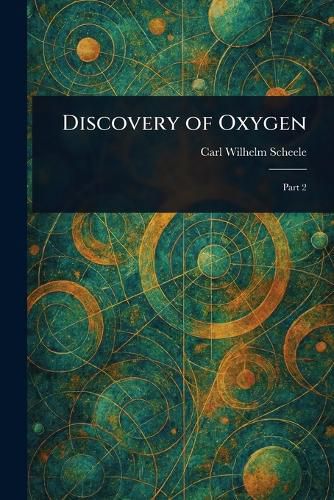Readings Newsletter
Become a Readings Member to make your shopping experience even easier.
Sign in or sign up for free!
You’re not far away from qualifying for FREE standard shipping within Australia
You’ve qualified for FREE standard shipping within Australia
The cart is loading…






This title is printed to order. This book may have been self-published. If so, we cannot guarantee the quality of the content. In the main most books will have gone through the editing process however some may not. We therefore suggest that you be aware of this before ordering this book. If in doubt check either the author or publisher’s details as we are unable to accept any returns unless they are faulty. Please contact us if you have any questions.
Delve into the history of one of science's most vital discoveries with "Discovery of Oxygen, Part 2," a seminal work by Carl Wilhelm Scheele. This meticulously prepared edition offers a glimpse into the groundbreaking research surrounding oxygen, a crucial element in combustion and life itself.
Explore the scientific landscape of the era as Scheele meticulously documents his experiments and observations, shedding light on the chemical processes that govern our world. This book offers invaluable insights into the early days of chemistry and the scientific method.
Essential reading for anyone interested in the history of science, chemistry, or the discovery of oxygen, this historical text provides a fascinating look at the meticulous work that led to a fundamental understanding of our atmosphere. Perfect for students, researchers, and anyone with a passion for scientific discovery.
This work has been selected by scholars as being culturally important, and is part of the knowledge base of civilization as we know it.
This work is in the public domain in the United States of America, and possibly other nations. Within the United States, you may freely copy and distribute this work, as no entity (individual or corporate) has a copyright on the body of the work.
Scholars believe, and we concur, that this work is important enough to be preserved, reproduced, and made generally available to the public. We appreciate your support of the preservation process, and thank you for being an important part of keeping this knowledge alive and relevant.
$9.00 standard shipping within Australia
FREE standard shipping within Australia for orders over $100.00
Express & International shipping calculated at checkout
Stock availability can be subject to change without notice. We recommend calling the shop or contacting our online team to check availability of low stock items. Please see our Shopping Online page for more details.
This title is printed to order. This book may have been self-published. If so, we cannot guarantee the quality of the content. In the main most books will have gone through the editing process however some may not. We therefore suggest that you be aware of this before ordering this book. If in doubt check either the author or publisher’s details as we are unable to accept any returns unless they are faulty. Please contact us if you have any questions.
Delve into the history of one of science's most vital discoveries with "Discovery of Oxygen, Part 2," a seminal work by Carl Wilhelm Scheele. This meticulously prepared edition offers a glimpse into the groundbreaking research surrounding oxygen, a crucial element in combustion and life itself.
Explore the scientific landscape of the era as Scheele meticulously documents his experiments and observations, shedding light on the chemical processes that govern our world. This book offers invaluable insights into the early days of chemistry and the scientific method.
Essential reading for anyone interested in the history of science, chemistry, or the discovery of oxygen, this historical text provides a fascinating look at the meticulous work that led to a fundamental understanding of our atmosphere. Perfect for students, researchers, and anyone with a passion for scientific discovery.
This work has been selected by scholars as being culturally important, and is part of the knowledge base of civilization as we know it.
This work is in the public domain in the United States of America, and possibly other nations. Within the United States, you may freely copy and distribute this work, as no entity (individual or corporate) has a copyright on the body of the work.
Scholars believe, and we concur, that this work is important enough to be preserved, reproduced, and made generally available to the public. We appreciate your support of the preservation process, and thank you for being an important part of keeping this knowledge alive and relevant.